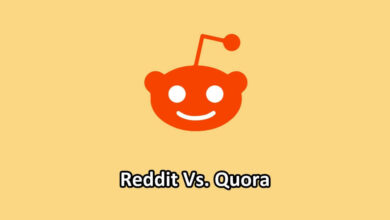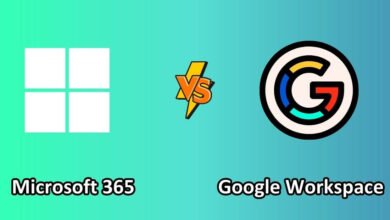Difference Between Programming and Coding(With Table)
Have you ever wondered what the difference between programming and coding is? With the advancement of technology, more and more people are starting to use the terms interchangeably but that doesn’t necessarily mean they are one and the same. In this article, I will outline the key differences between programming and coding with a helpful table for easy reference. So let’s scan the article.
You May Also Want to Read: Difference Between SQL and MySQL
What is Programming?
Programming is a process of speeding up a task or action by creating a set of written instructions for running a specific sequence of commands or tasks. Programming is also a form of communication.
In other words, programming is the process of writing a set of instructions that can be followed by a computer to carry out a task or solve a problem. Programmers create software applications, websites, video games, and other digital products with code, which is a human-readable language that gives direction to the computer in order for it to execute tasks. Programming involves understanding how computers work and how different components interact with each other.
Programming languages are used by developers to write code in order to create programs and websites. Examples of popular programming languages include Java, C++, JavaScript, Python, HTML, and CSS. Different programming languages are better suited for certain tasks or environments so it’s important for developers to choose the right language for their project.
Overall, programming enables us to do amazing things with computers and can be used to create products that save time, automate processes, and make life easier.
What is Coding?
Coding, on the other hand, is the process of translating these written instructions into a form a computer can understand. In order to do this, coders use a programming language that provides them with a set of rules and symbols they can follow to create their code.
Coding can be used to create a wide range of applications, from simple web pages to complex programs and operating systems. It enables computers to complete tasks more quickly and efficiently than if they were written by hand. Coding is also necessary for the development of online services, such as apps and websites, which are a major part of our daily lives.
When coders write code it first needs to be compiled (put into an executable form) so that the computer can understand it. This compilation process is done using a compiler, which takes the code and turns it into something the computer can execute. Once the code has been compiled, it is ready to run on a computer or device.
In addition to writing code, coders must also debug their programs to make sure they work correctly. Debugging involves finding errors (called bugs) in the code that prevent the program from working properly and fixing them before releasing it for use.
How do Programming and Coding Work Together?
Coders translate the programmer’s instructions into code that the computer can understand. This code is usually in a high-level programming language like C++ or Java. The coder writes this code in a text editor and then runs it through a compiler, which converts it into machine code—the 1s and 0s that computers actually use.
Programmers, on the other hand, design the algorithms that coders then translate into code. Programmers need to be able to break down problems into smaller pieces and figure out how those pieces can work together to solve the problem. They also need to be able to think abstractly, which means being able to see beyond the literal meaning of things and understand concepts at a deeper level.
Advantages of Learning Programming and Coding
There are many advantages of learning programming and coding. Here are some key benefits:
- Helps you think logically: One of the main benefits of learning programming is that it helps you think more logically. This is because in order to write a program, you need to break down a problem into smaller chunks and then put them back together again in a way that the computer can understand. This process forces you to think in a step-by-step manner which can be very helpful in solving real-world problems.
- Teaches you how to solve problems: Another great benefit of learning programming is that it teaches you how to solve problems. When you’re faced with a problem, you need to figure out what the inputs are, and what the outputs should be, and then write code that will transform the inputs into the desired outputs. This process can be applied to any problem, whether it’s personal or professional.
- Job opportunities: Learning programming opens up a lot of job opportunities. There is a huge demand for programmers, and that demand is only increasing as more businesses move their operations online. With the right skills and experience, you can find a well-paying job in any field you’re interested in.
- Helps you learn other languages: If you learn one programming language, it will be much easier for you to learn another language. This is because all programming languages share similar concepts, so once you understand one language, it will be easier to pick up another one. Additionally, knowing multiple languages will make you more marketable as a programmer.
- Enables you to create things: One of the best things about learning programming is that it enables you to create things that would otherwise be impossible. Whether it’s a website, a mobile app, or a game, programming gives you the power to build whatever you want. Plus, once you create something, you can share it with the world and potentially make some money from it.
- Allows you to be creative: One of the most underrated benefits of learning programming is that it allows you to be creative in ways that other fields don’t. When writing code, you have complete freedom to design whatever solution you want and use the tools available to make your code as efficient as possible. This freedom allows programmers to express their creativity in ways they might not be able to do otherwise.
- Increases Earning potential: Programming and coding skills can lead to higher-paying jobs and the ability to create your own software or apps as a source of income.
- Facilitates understanding of technology: Programming is a fundamental aspect of modern technology and understanding how it works can deepen your understanding and appreciation of technology in general.
How Do I Learn Programming and Coding?
Some skills that are useful for learning to code and program include:
- Passion: It’s most helpful if you are passionate about coding because it is fun to learn, fun to build, and fun to debug.
- Logical thinking: The ability to break down a problem into smaller parts and think about how to solve it step by step.
- Attention to detail: The ability to carefully read and follow instructions, as well as spot errors in code.
- Patience: Learning to code can be challenging, and debugging errors can be frustrating. Being patient and persistent is important.
- Problem-solving: The ability to find solutions to problems by thinking creatively and critically.
- Learning new things: Programming languages, frameworks, libraries, and tools are continuously evolving, so a willingness to learn new things is important.
- Good memory: Being able to remember and recall various commands, syntax, and techniques that you’ve learned is an important part of coding.
Some people recommend starting with basic concepts of mathematics like Algebra and trigonometry, as it may help with the logic and problem-solving aspect of coding.
You Can Also Read: Difference Between Data Science and Data Analytics
Programming Vs Coding(Comparison Table)
The following table will help you understand the difference between programming and coding.

Key Differences Between Programming and Coding
The three main key distinctions between programming and coding are:
- Purpose: Programming refers to the overall process of designing, writing, testing, and maintaining the source code of a computer program. Coding, on the other hand, refers to the specific task of writing the source code.
- Abstraction: Programming is often associated with higher-level concepts and abstractions, such as algorithms and data structures. Coding is more focused on the specific implementation of these concepts in a particular programming language.
- Scale: Programming involves the entire process of developing software, whereas coding refers to a specific phase of that process.
It’s worth noting that the terms “programming” and “coding” are often used interchangeably, especially in casual conversations, but in some contexts, they may have specific distinct meanings.
Conclusion
As is clear from the table, programming and coding are two different things even though they may appear to be similar. Programming involves writing a set of instructions that will allow computers to perform certain tasks while coding involves writing code or software that follows these instructions. Both programming and coding are essential for any kind of software development process and without them, it wouldn’t be possible to create something from scratch. In conclusion, both programming and coding have their own place in the world of computer science but they cannot replace each other when it comes to developing software applications.




One Comment